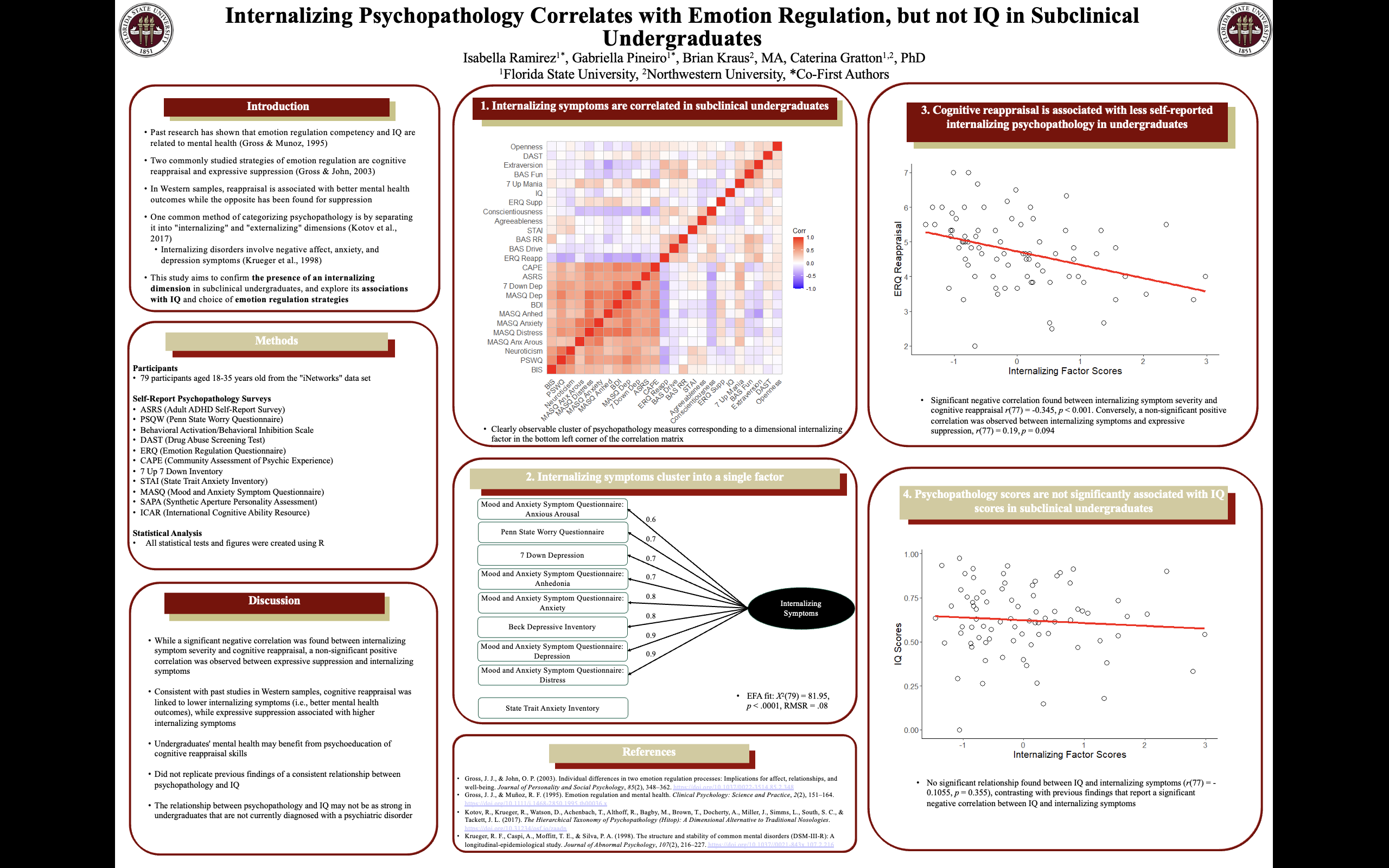Research Symposium
24th annual Undergraduate Research Symposium, April 3, 2024
Isabella Ramirez Poster Session 3: 1:30 pm - 2:30 pm/15

BIO
My name is Isabella Ramirez, I am a junior at FSU double majoring in criminology and psychology. Outside of work and school, I enjoy crocheting, going on walks, and spending time with friends. After graduation I plan on getting my PhD or PsyD with a concentration in forensic psychology. My career goal is to work with the state as a forensic psychologist, combining both of my interests, psychology and criminology!
Internalizing Psychopathology Correlates with Emotion Regulation, but not IQ in Subclinical Undergraduates
Authors: Isabella Ramirez, Brian KrausStudent Major: Psychology, Criminology
Mentor: Brian Kraus
Mentor's Department: Psychology Mentor's College: Northwestern University Co-Presenters: Gabriella Pineiro
Abstract
In psychopathology, the comorbidity of multiple psychiatric disorders can have a substantial effect on an individual’s treatment outcome. One commonly studied dimension of psychopathology are internalizing disorders, which encompass the experience of negative affect and include symptoms of anxiety and depressive disorders. Here, we sought to replicate the presence of an internalizing dimension in a sample of young adults and examine relationships with IQ and emotion regulation strategies. Past research suggests emotion regulation strategies have different outcomes on mental health, with cognitive reappraisal associated with better health outcomes versus expressive suppression. The current study included 79 participants 18-35 years old recruited from Northwestern and Florida State University. We replicated previous work showing the existence of an internalizing dimension using the Mood and Anxiety Symptom Questionnaire, Beck Depression Inventory, 7-up 7-down depression measure, and the Penn State Worry Questionnaire. A significant negative correlation was observed between internalizing symptom severity and cognitive reappraisal, r(77) = -0.35, p=0.0009, but a non-significant positive was present for expressive suppression, r(77) = 0.19, p=0.0938. Thus, individuals who preferred cognitive reappraisal had lower levels of internalizing symptoms, and vice-versa for expressive suppression. There was no significant relationship between IQ and internalizing symptoms, r(77) = -0.11, p=0.3548. As hypothesized, a clear internalizing factor was present in our data and it was associated with one’s choice of emotion regulation strategy. However, the IQ measure did not show a hypothesized negative correlation with internalizing symptoms. Future research should further examine the relationship between IQ and internalizing symptoms in young adults.
Keywords: Psychopathology, Emotion Regulation


